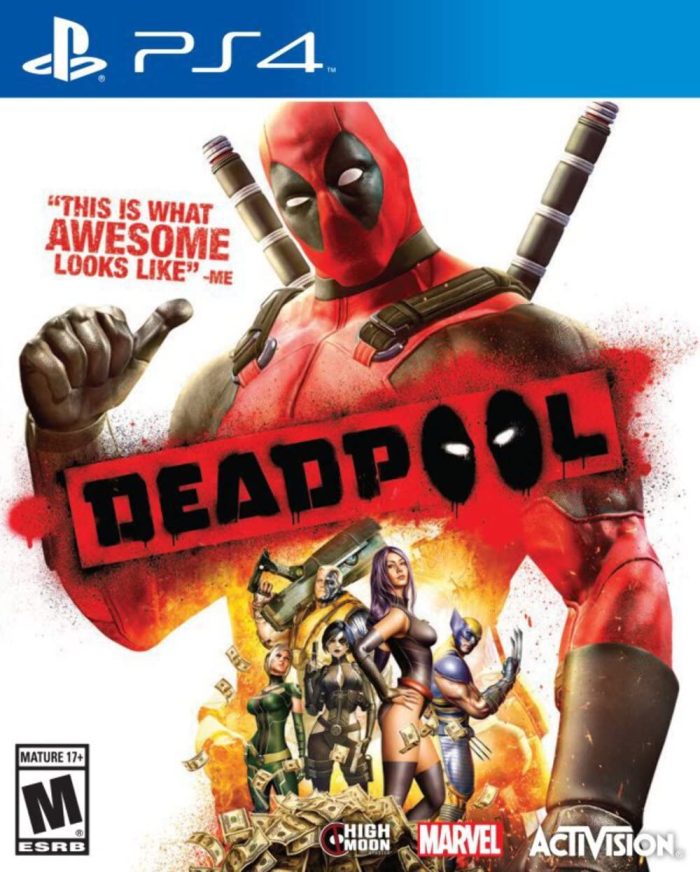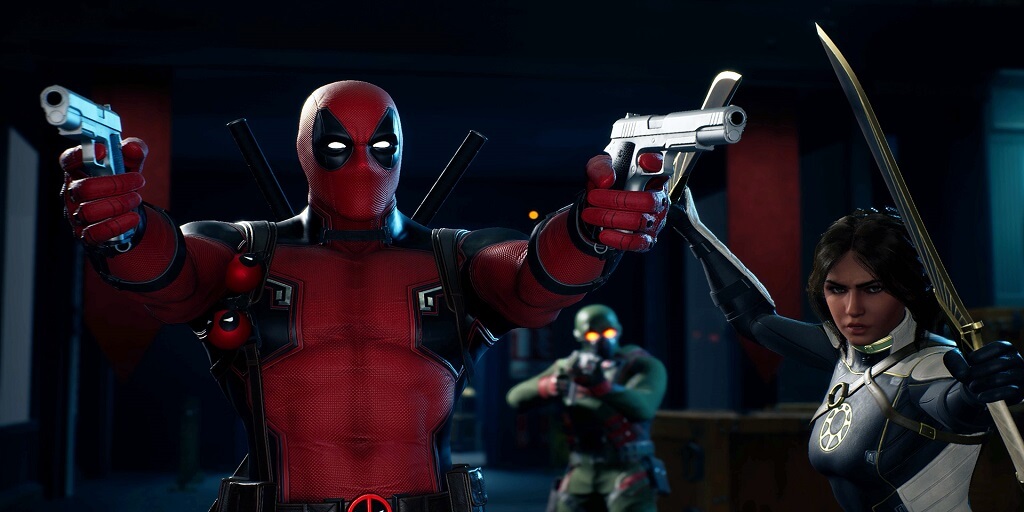The “Deadpool” game, based on the popular Marvel Comics character, was developed by High Moon Studios and published by Activision. Released in 2013, the game was initially available on various platforms, including PlayStation 3, Xbox 360, and Microsoft Windows. In 2015, the game was re-released for PlayStation 4 and Xbox One. Despite the widespread popularity of the Deadpool character, especially in recent years due to the success of the Deadpool films starring Ryan Reynolds, the Deadpool game did not achieve overwhelming commercial success. Its sales figures and the overall impact on the gaming market can be explored through various factors that influenced its performance.

The Deadpool Game: A Brief Overview
Before diving into sales figures, it’s crucial to understand what the Deadpool game offered. The game was praised for its humor, which is in line with the irreverent and fourth-wall-breaking nature of the Deadpool character. Nolan North’s voice performance as Deadpool was also lauded by fans and critics alike. However, the gameplay itself was considered somewhat lackluster, with repetitive combat mechanics and limited depth. While the character of Deadpool was fully realized and celebrated, the game itself failed to stand out in a competitive gaming landscape.
Launch and Early Sales
When the Deadpool game launched in June 2013, it did so without much fanfare. Activision’s marketing efforts for the game were relatively modest, especially compared to some of the blockbuster franchises the company handles, such as Call of Duty. Despite Deadpool’s strong fanbase, this lower level of marketing likely contributed to the game’s relatively slow sales.
In its first month, Deadpool sold around 80,000 copies across all platforms in the U.S. This initial sales figure of 80,000 copies was a modest performance, especially considering the game’s release coincided with the growing popularity of the Marvel cinematic universe and Deadpool’s increasing recognition as a standout character. However, several factors contributed to the game’s slower-than-expected initial reception.
Factors Influencing Sales
1. Limited Marketing and Promotion
One of the key reasons the Deadpool game didn’t achieve massive sales was the lack of aggressive marketing and promotion. Unlike other major titles from Activision, Deadpool didn’t benefit from a large-scale advertising campaign. While the character had a dedicated fanbase, the game itself was not treated as a flagship title for the company. This meant that many potential players may not have even been aware of its release, reducing its exposure to a broader audience.
2. Mixed Reviews
While Deadpool’s humor and faithful representation of the character were praised, the game received mixed to average reviews from critics. Major gaming publications like IGN and GameSpot highlighted the game’s repetitive combat mechanics, mediocre level design, and lack of innovation in its gameplay. As a result, the game had a Metacritic score in the mid-60s to low 70s, depending on the platform.
For many players, this middling reception might have deterred them from purchasing the game, especially when there were many other high-quality, big-budget games available around the same time. The lack of replay value was another critique that impacted long-term sales, as the game was relatively short with little incentive to replay once completed.
3. Licensed Game Struggles
Licensed games, particularly those based on comic book characters, have historically faced difficulties. While there are exceptions like the highly successful Batman: Arkham series, many licensed games, including Deadpool, struggle to break out in a saturated market. Gamers are often skeptical of licensed properties due to the history of mediocre or rushed titles designed primarily to capitalize on a franchise’s popularity rather than deliver quality gameplay. This stigma may have contributed to Deadpool’s slower sales, with some gamers opting to wait for reviews or discounts rather than buying the game at launch.
Sales Over Time
After its initial release, the game’s sales continued to grow slowly but steadily. By the end of 2013, the total sales across all platforms were estimated to be around 300,000 copies worldwide. While this is far from the figures achieved by other major game franchises, it still demonstrated that the Deadpool game had a niche appeal, especially to diehard fans of the character.
The sales likely received a slight boost following the release of the Deadpool film in 2016. The movie, which was a massive success at the box office, introduced many more people to the character. Although the game had been out for several years by then, its re-release on PlayStation 4 and Xbox One in late 2015 allowed it to capitalize on the renewed interest in Deadpool following the movie’s success. This re-release helped push the game’s sales further, especially as it was available to new players who had upgraded to the current generation of consoles.
Re-release and Later Sales
In November 2015, Activision re-released the Deadpool game on PlayStation 4 and Xbox One. This move was likely aimed at taking advantage of the then-upcoming Deadpool film, which had generated significant buzz. The re-release included some visual improvements but largely remained the same game. Despite this, it was generally well-received by fans, though it didn’t garner much attention from critics or the broader gaming audience.
The re-release led to an uptick in sales, though exact figures are harder to come by. However, estimates suggest that the game sold between 100,000 and 200,000 additional copies following its re-release, largely buoyed by fans of the film who were interested in exploring more Deadpool content. Despite this bump, it still failed to break into the upper echelons of sales compared to other superhero or action games released in the same time frame.
Estimated Total Sales
Based on various reports and sales estimates, the Deadpool game is believed to have sold around 500,000 to 1 million copies across all platforms and re-releases by 2020. While these numbers are not disastrous, they are far from the blockbuster sales that other major action games have achieved. It’s important to note that this includes all sales from its original release on PS3, Xbox 360, and PC, as well as its later re-release on PS4 and Xbox One.
In contrast, other superhero-based games, such as the Batman: Arkham series or the Spider-Man game for PlayStation 4, have sold millions of copies and are considered critical and commercial successes. Deadpool’s lower sales can be attributed to the factors discussed earlier, including a lack of standout gameplay, limited marketing, and a niche appeal that didn’t attract mainstream gamers in the same way as other superhero games.
Legacy and Continued Interest
Despite its modest sales, the Deadpool game remains a cult favorite among fans of the character. The humor, fourth-wall-breaking moments, and Nolan North’s voice performance continue to be celebrated as highlights of the game. For those who are passionate about the Deadpool character, the game is considered a fun, albeit flawed, experience that captures the essence of the “Merc with a Mouth.”
Furthermore, Deadpool’s continued popularity in other media, including his appearances in the Marvel Cinematic Universe and the ongoing success of the film franchise, keeps the game relevant to some extent. Fans of the films or comics may still seek out the game as a way to enjoy more Deadpool content, even years after its initial release.
Conclusion
In summary, the Deadpool game sold between 500,000 and 1 million copies across all platforms, including its initial release and subsequent re-release. While these numbers are not extraordinary, they reflect a dedicated fanbase and the appeal of the Deadpool character. Factors such as limited marketing, mixed reviews, and the challenges faced by licensed games contributed to its modest sales figures. Despite this, the game continues to hold a special place in the hearts of Deadpool fans and is remembered for its humor and faithful portrayal of the iconic character.
Although the game didn’t achieve blockbuster success, its enduring fanbase, coupled with the continued popularity of Deadpool in films and comics, has allowed it to maintain a level of interest in the years since its release. Whether or not a future Deadpool game will ever be made remains uncertain, but for now, the 2013 title stands as a quirky, if imperfect, representation of the “Merc with a Mouth” in the world of gaming.
Read Also
- 12 Best Gaming Mice Under $50
- Logitech G930 Wireless Gaming Headset Review
- 5 Best Old Games to Play in 2024
